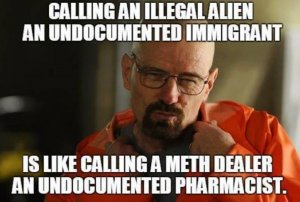Ronni
Well-known Member
- Location
- Nashville TN
Our words and the meanings we attach to them create attitudes, drive social policies and laws, influence our feelings and decisions, and affect people’s daily lives and more. How we use them makes a difference. People First Language puts the person before the disability, and describes what a person has, not who a person is. Using a diagnosis as a defining characteristic reflects prejudice, and also robs the person of the opportunity to define him/herself.
http://www.tcdd.texas.gov/resources/people-first-language/
| Examples of what you should say. | Examples of what you should not say. |
|---|---|
| Say This | Not This |
| people with disabilities | the handicapped, the disabled |
| people without disabilities | normal, healthy, whole or typical people |
| person who has a congenital disability | person with a birth defect |
| person who has (or has been diagnosed with)… | person afflicted with, suffers from, a victim of… |
| person who has Down syndrome | Downs person, mongoloid, mongol |
| person who has (or has been diagnosed with) autism | the autistic |
| person with quadriplegia, person with paraplegia, person diagnosed with a physical disability | a quadriplegic, a paraplegic |
| person with a physical disability | a cripple |
| person of short stature, little person | a dwarf, a midget |
| person who is unable to speak, person who uses a communication device | dumb, mute |
| people who are blind, person who is visually impaired | the blind |
| person with a learning disability | learning disabled |
| person diagnosed with a mental health condition | crazy, insane, psycho, mentally ill, emotionally disturbed, demented |
| person diagnosed with a cognitive disability or with an intellectual and developmental disability | mentally retarded, retarded, slow, idiot, moron |
| student who receives special education services | special ed student, special education student |
| person who uses a wheelchair or a mobility chair | confined to a wheelchair; wheelchair bound |
| accessible parking, bathrooms, etc. | handicapped parking, bathrooms, etc. |
I agree completely that the person is NOT their disability, and focusing on them is important. But I can't help but wonder if we're taking things a bit far. I abhor the use of "retarded" or other such name to refer to someone who is mentally challenged for example. But I have two friends who are hearing impaired, and they both routinely refer to themselves as "deaf."
It gets really nuanced too. I mean, is it actually offensive to say "she is learning disabled" instead of "she is a person with a learning disability?" I don't want to offend anyone so personally I know I'm going to be over-cautious. But I also know me, and so I'm gonna come right out and say "will it offend you if I say such and so?" or "how should I refer to you/your disability?" at least with people I know.
Have any of you run into this?


